The best clinics in Germany
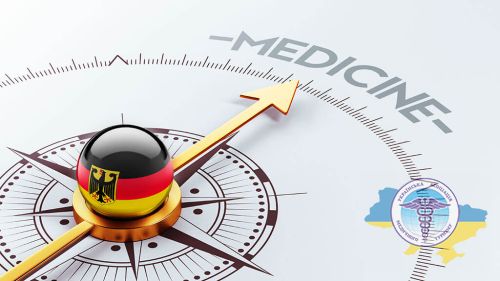
Germany is rightfully ranked among the leading countries of the European Union in terms of health protection. The country's specialists have earned a reputation as pioneers in most areas of medicine. They were the first to transform human blood cells into stem cells, which are now actively used for the restoration of various organs and rehabilitation.
Also, scientists of this country have developed new types of analysis, which allows in the shortest possible time to identify the causative agent of infectious blood infection using magnetic therapeutic nanoparticles.
The strongest aspect of German clinics is heart transplantation. Specialists successfully implant implants in patients awaiting a donor organ. German doctors widely use the least traumatic techniques for surgical operations. Such methods are much less damaging to tissues and eliminate blood loss, shortening the recovery time.
Important! German medicine uses its own developments, which allowed specialists to achieve high achievements in the field of oncology and neurosurgery, as well as in ophthalmology, orthopedics, etc.

Want to know how much the treatment costs?
Answer a few questions and get preliminary information about the cost of diagnosis and treatment!
TOP 5 best clinics in Germany
Developed medicine allows us to maintain high-quality treatment in all hospitals in the country, however, among them, the 5 best clinics in Germany can be distinguished, leading in all world rankings:

Charite University Hospital
The most famous German clinic, founded in 1710. It is the oldest traditional hospital. The Berlin Mercy Clinic got its name from the French word Charite, which can be translated as "love for one's neighbor." The well-equipped university complex annually receives about a million outpatients and inpatients and demonstrates a high rate of patient recovery.
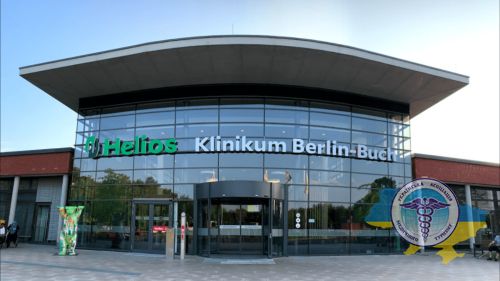
Helios Hospital Berlin-Buch
Helios is a multidisciplinary complex of medical institutions that are part of the HELIOS Hospital Group of private clinics of the highest category. About 5 million patients annually receive care in this largest European medical corporation, of which more than a million are treated in hospitals. The clinic employs more than 71 thousand employees, including world-renowned scientists and professors.

University clinic Aachen
The multidisciplinary university clinic is widely known outside the European Union. Since 2010, the institution has been participating in the High 5s project, implementing various WHO programs, including Safe Surgery. The clinic maintains a strict hygiene management system and uses an internal CIRS program to monitor unwanted incidents. This monitoring system made it possible to significantly reduce the number of nosocomial infections in comparison with the average level of other German healthcare institutions.
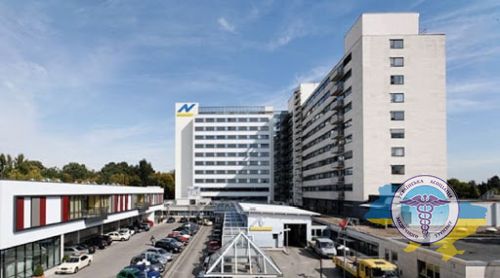
Clinic Nordwest
Academic Clinical Hospital of the German Goethe University. The multidisciplinary medicine center provides a full range of treatment in 10 specialized clinics. The practice of the doctors of the clinic is combined with research in medicine, which is why patients have the opportunity to receive new and experimental methods in the treatment of diseases.
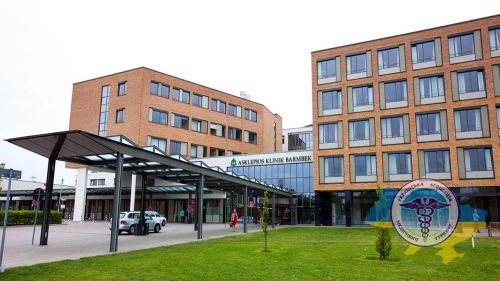
Asklepios private clinics network
The largest concern includes a network of private clinics that provide medical services for qualified treatment with high quality service. There are more than 100 medical institutions with 40 hospitals. The clinic's specialization covers a wide range of areas in almost all areas of medicine. The network has clinics located not only in Germany, but also outside the EU, including the USA. The use of innovative developments and high quality services have made the group a leader in German medicine.
Why are German clinics leading in international rankings?
For a number of reasons, German clinics are the most suitable alternative for the treatment of foreign patients in comparison with medical institutions in other countries. The most important among them:
- High-precision diagnostics. Experienced personnel and high-precision samples of diagnostic equipment allow conducting an examination according to a well-established scheme;
- New treatment methods. German scientists are developing new techniques and using them in practice. This country was among the first to use targeted therapy for the treatment of cancer patients. The method has improved the prognosis in the treatment of cancer, lymphoma and other pathologies;
- Innovative equipment. The clinics are equipped with the highest level medical equipment. The equipment records any deviations in the functioning of organs and disturbances in the tissues of the body. For example, the use of high-precision tomographs allows to find new tumors of several millimeters. The use of the Da Vinci robot during the operation allows you to remove pathologies in the tissues with an accuracy of one millimeter;
- Service level. In terms of popularity in the ratings, German clinics are in leading positions, as they apply innovations in treatment methods and provide clients with a high level of comfort. The revealed disease often causes stress and nervous experience in people. German clinics provide maximum comfort and reduce stress so that patients can calmly focus on their health;
- Individual approach. In clinics in Germany, the most complete information picture is recreated, taking into account all the nuances of the patient's health. When choosing the optimal treatment method, other existing diseases, age and other parameters are taken into account. This special approach helps to achieve high effectiveness of therapy. More than half of cancer patients in German hospitals are fully cured;
- Affordable cost of treatment. Prices for medical procedures with an excellent level of treatment and service are loyal. The cost for an appointment, consultation, intervention and other medical services is much lower than in the United States and other developed countries. This fact is confirmed by the large number of tourists who travel to German hospitals for treatment every year.
What equipment is available in leading German clinics?
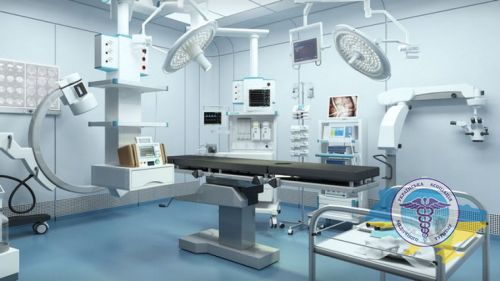
Medical institutions in the country renew their equipment every 1-2 years. The medical equipment of the leading clinics in Germany is being modernized at a rapid pace. The country uses modern diagnostic devices, many complex surgical interventions are performed by robotic systems. During treatment and during the rehabilitation period, such equipment is used as:
- MRI machines. The latest generation of diagnostic devices with high accuracy and 3 Tesla power;
- Da Vinci robot. Allows to exclude the human factor during the majority of surgical operations;
- ROSA robotic assistant. Helps to carry out minimally invasive interventions when performing procedures in neurosurgery;
- The latest monitoring systems. Provide round-the-clock monitoring of the condition of patients;
- Neuronavigation systems. A set of computerized technologies that are used for endoscopic interventions;
- Rehabilitation exoskeletons. Such suits make it possible to walk even for patients who move in a wheelchair. They react to human nerve impulses, due to which the patient moves in an exoskeleton;
- Ancillary equipment for severe patients. The latest artificial blood circulation devices, oxygen supply to the lungs, air disinfection and purification systems, special beds with a lifting mechanism, etc.;
- Devices for memory and intelligence recovery. Used to improve brain performance in neurological patients;
- Rehabilitation simulators. Robotic complexes that restore motor functions.
What types of medical clinics are there in Germany?
When choosing a German clinic for diagnostics, treatment and rehabilitation measures, you should pay attention to the fact that medical institutions are divided into municipal, university and private. When choosing, the criteria are individual and depend on the specific diagnosis and the prescribed method of treatment.
University clinics
One of the most common categories of hospitals is university hospitals in Germany. They are usually organized at medical faculties of educational institutions. Such large medical centers often have a wide profile and are clinical bases of universities. The main difference is the availability of self-developed treatment methods, the use of experimental methods introduced in the process of cooperation between doctors and scientists.
The cost of medical procedures in a uniklinik is higher than in a conventional hospital. But the main advantage for most people is that the focus of scientific attention of each department is specialization in methods of treatment of specific diseases.
Municipal clinics
Most of the German municipal clinics are multidisciplinary, they treat patients with various diseases. The hospitals have sufficient equipment and staff, and various studies are being carried out. The institutions have everything they need and patients do not have to go to other organizations to conduct other special studies.
Private clinics
Most private clinics in Germany are narrow-profile institutions specializing in a specific area, for example, surgery, oncology, etc. Narrow specialization significantly improves the quality of medical services provided. As a rule, such organizations are in close contact with leading specialists practicing in unikliniks and public hospitals.
The German government exercises strict control over the activities of such medical institutions and regulates the cost of services, which are often cheaper compared to prices in uniclinics.
Advice! Although treatment in a private hospital is more expensive than in a municipal hospital, patients save a lot if the disease does not require hospitalization. In such cases, it is much more profitable to undergo treatment in private clinics.



